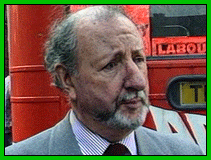

Martin Henry Flannery was born in Hillsborough, Sheffield, England on 2nd March 1918; the youngest of seven children. His father, Martin Henry Flannery senior, served as a soldier with the Dublin Fusiliers at the time, stationed at Hillsborough Barracks, then later worked as a foreman in a steel works. His mother worked as a buffer in the cutlery industry. Martin Henry Flannery senior was born in Clonmel Barracks, County Tipperary, on 5th January 1874; the son of Patrick James and Anne (née Keating) Flannery, with brothers Patrick and Michael. Patrick James Flannery was Sergeant Major of Pensioners in Clonmel Barracks.
Martin was educated at the Sacred Heart School in Hillsborough, the De La Salle School in Sheffield (to which he had won a scholarship), and Sheffield Grammar School. He attended Sheffield Teachers' Training College, and began to work as a teacher, but then volunteered to join the British Army in the Second World War. He joined the 1st battalion of the Royal Scots, was sent to India in 1942, and was wounded in Burma in 1945. He was a warrant officer when he was demobilised.
Martin married Blanche Howson in 1949, with whom he had a son Jim and two daughters.
He resumed teaching at a primary school in Sheffield in 1946 and was opposed to corporal punishment. He served as headteacher of Crookesmoor Junior and Infants School in Sheffield from 1969 to 1974. He was a left-wing member of the National Union of Teachers, and was a member of the NUT national executive from 1970 to 1974. Ever one for detail, Martin later told the Commons that in England and Wales there was a caning every 19 seconds and that it closed the channels of learning, made it more difficult for the teacher to teach and had all sorts of bad effects. As an experienced and successful headmaster in a tough area of a tough city, he was one of the driving forces in changing the parliamentary attitude to corporal punishment. And for 15 years few Commons debates on education were complete without his contribution.
He was elected as Member of Parliament for Sheffield Hillsborough at the February 1974 general election, and served until his retirement in 1992. Martin held off strong Liberal challenges to his position in the 1983 and 1987 general elections, surviving by 1,546 votes (2.8%) on the former occasion.
Politically, he was a Communist until the Hungarian Revolution of 1956 was crushed by the Soviet Union, but he remained on the far left of the Labour party. His wife remained a Communist until the Communist Party of Great Britain was disbanded. He held anti-Zionist (but not anti-Jewish) views, and was a strong advocate of human rights, with close links to Amnesty International. He was of Irish descent, and supported the republican cause, opposing the Prevention of Terrorism Act. He opposed New Labour, and the wars in Afghanistan and Iraq.
Martin was chairman of the left-wing Tribune Group of Labour MPs from 1980 to 1981, but left to form the hard-left Campaign Group.
His colleagues recollect that the issue that mattered most to Martin above all others was Northern Ireland. He was Chairman of the Parliamentary Labour Party Northern Ireland Committee from 1983 to 1992 and spoke in every Irish and terrorism debate. After 11 o'clock at night, in the fraught circumstances of 21st February 1985, he stated: "Conservatives do not really understand the serious problem we are facing. They should appreciate that people have a right to come to this place and to talk to Members about their feelings and about what is happening. The Irish community on the mainland has about 750,000 members. It includes those whose connections with Ireland are not those of individuals such as myself, whose families have been here for over 100 years. It includes those who have come here from Ireland in recent years. The Federation of Irish Societies has profound feelings against the [Prevention of Terrorism] Act and Conservative Members should understand that. It feels that [the Act] bears down on them in a terrible way."
Martin died on 16th October 2006.
[his portrait is illustrated above; courtesy of BBC News]